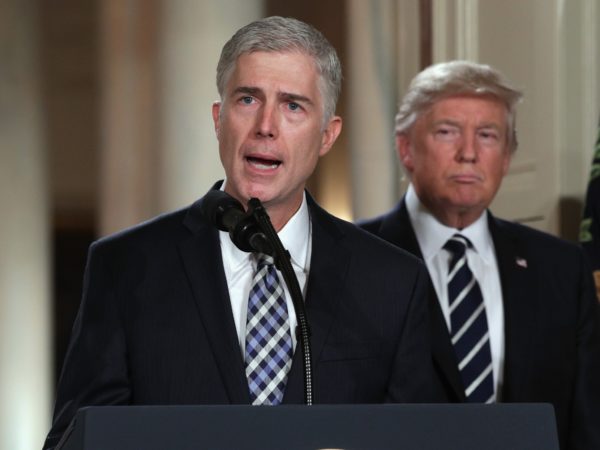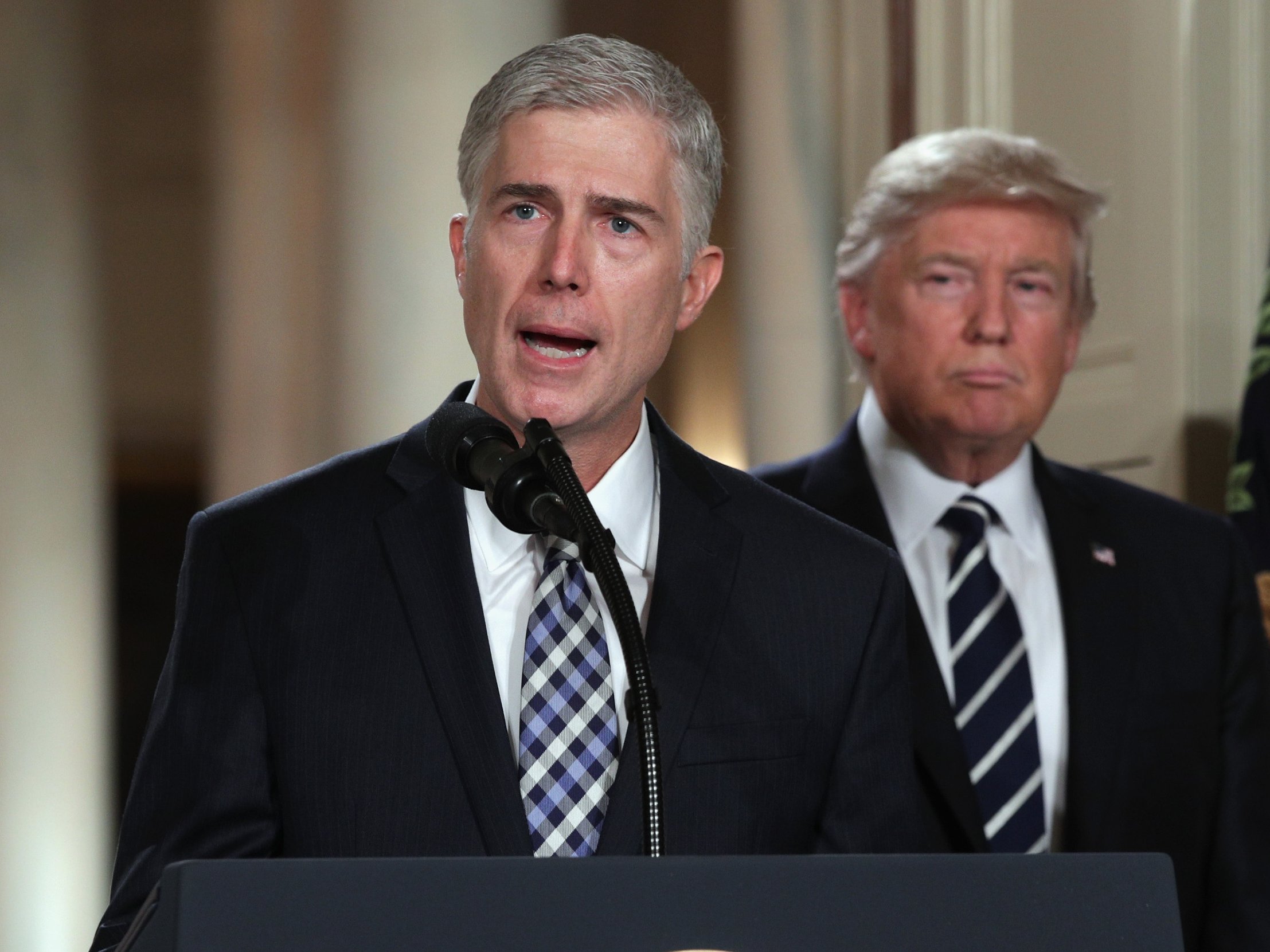Colorado federal appeals court judge Neil Gorsuch is President Donald Trump’s nomination for the Supreme Court.
If confirmed by the Senate, Neil Gorsuch, 49, would restore the court’s conservative majority, lost with the death of Justice Antonin Scalia.
The Senate Democratic leader has said he has “very serious doubts” about Judge Neil Gorsuch’s nomination.
The court has the final legal word on many of the most sensitive issues, from abortion to gender to gun control.
President Trump said Judge Gorsuch had a “superb intellect, an unparalleled legal education, and a commitment to interpreting the Constitution according to text”.
“Judge Gorsuch has outstanding legal skills, a brilliant mind, tremendous discipline, and has earned bipartisan support,” he said.
Neil Gorsuch was picked from a shortlist of 21 choices, which Donald Trump made public during the election campaign.

Accepting the nomination, Neil Gorsuch said: “It is the role of judges to apply, not alter, the work of the people’s representatives. A judge who likes every outcome he reaches is very likely a bad judge, stretching for results he prefers rather than those the law demands.”
Judge Gorsuch is a so-called originalist, meaning he believes the US Constitution should be followed as the Founding Fathers intended.
If successful, Neil Gorsuch’s nomination will restore the 5-4 conservative majority on the nine-seat high court.
Protests against Donald Trump’s choice were held outside the Supreme Court following the announcement.
Neil Gorsuch’s nomination is expected to spark a political showdown in the Senate.
Former President Barack Obama had put forward Judge Merrick Garland after Justice Antonin Scalia’s death in February 2016.
However, Republicans refused to debate the choice, saying it was too close to an election, which left Democrats embittered.
Even if Judge Neil Gorsuch makes it through the Senate Judiciary Committee, he will still face challenges when the entire chamber convenes for a final vote.
Democrats may seek to prevent that second vote by prolonging or filibustering the debate. In that case, the nomination would need 60 votes rather than a simple majority.
With Republicans only holding 52 Senate seats, they may have to change Senate rules in order to approve Donald Trump’s nominee.
The Supreme Court is often the ultimate arbiter on highly contentious laws, disputes between states and the federal government, and final appeals to stay executions.
The highest court hears fewer than 100 cases a year and the key announcements are made in June.
Each of the nine justices serves a lifetime appointment after being nominated by the president and approved by the Senate.
The Supreme Court already has cases this term on the rights of transgender students, gerrymandered voting districts and on the Texas death penalty determination.
It is also likely the court will hear cases on voter rights, abortion, racial bias in policing and US immigration policy, and possibly on Donald Trump’s controversial executive order banning refugees.
